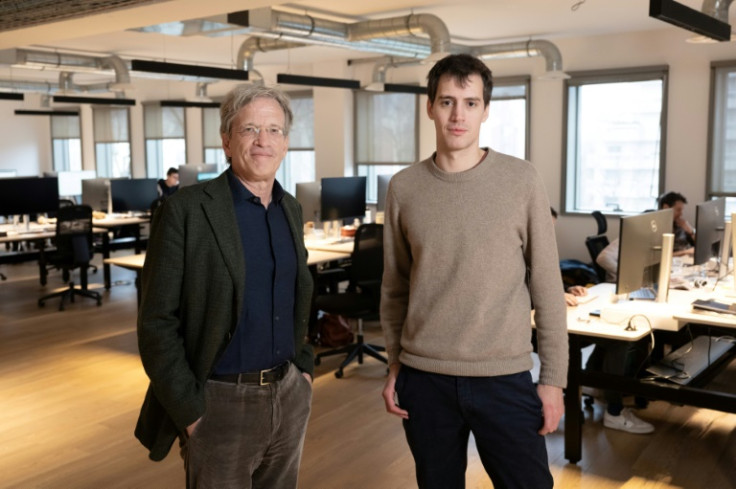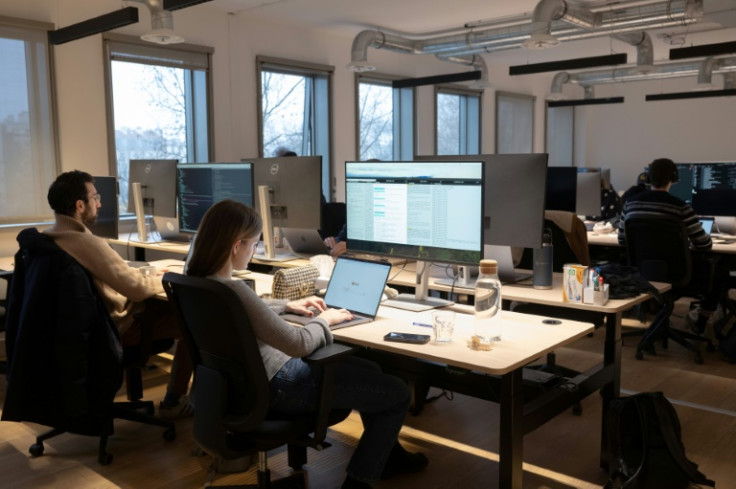
Global news agency Agence France-Presse (AFP) and French artificial intelligence company Mistral AI have signed a deal for the start-up's chatbot to use news agency reports to respond to users' requests, executives from the two organisations said Thursday.
The parties did not reveal the value of the "multi-year" contract nor its precise duration.
It was the first such deal struck by AFP and for Mistral AI, a European competitor to American giants like ChatGPT creator OpenAI.
Tie-ups between news organisations and AI developers remain relatively rare worldwide, despite a pick-up in activity last year.
OpenAI has struck the most deals, including with British business daily the Financial Times, French centre-left paper Le Monde and Germany's Axel Springer group, which publishes conservative broadsheet Die Welt and tabloid-style Bild.
"This is the first deal between two players with global ambitions, indeed a global footprint as far as AFP is concerned, but with well-anchored European roots," the agency's chief executive Fabrice Fries told AFP journalists in an interview.
He added that the contract would offer the agency "a new revenue stream".
On Mistral's side, "AFP brings a verified, journalistic source that we think is very important," founder Arthur Mensch said.
AFP articles in six languages -- French, English, Spanish, Arabic, German and Portuguese -- will be available to Mistral's Le Chat chatbot from Thursday.
The product works similarly to ChatGPT, the first such tool to reach a broader audience: users type in a question and receive a response within seconds.
Le Chat will answer questions about current events using AFP articles -- the text news the agency typically sends to its subscription-paying clients in the media, government and other institutions, and businesses.
The AFP integration will undergo a test period during which it will be available only to a segment of Mistral users.
Le Chat can draw on the agency's text archives going back to 1983, but has no access to AFP's photo, video or infographics production.
The records amount to around 38 million articles, Fries said, adding that the agency publishes a further 2,300 every day.
Access via Mistral's Le Chat could be useful to "professionals or managers in large businesses" for "writing memos" or other documents related to current affairs, Fries suggested.
Among the broader public, many people are using generative AI tools in different ways.
Some ask questions about daily life, receiving answers the bots have plucked from the internet.
The two user styles are "complementary", Mistral boss Mensch said.
Where users' questions "require verified information, AFP will provide" the inputs.
"Concerning shopping or the weather, it will come more from the web," Mensch added.
Thursday's AFP-Mistral deal comes just over a week after Facebook and Instagram parent company Meta said it would end its fact-checking programme in the United States.
Worldwide, AFP is a major participant in fact-checking content on Meta's platforms.
"Our discussions with Mistral began just under a year ago, so there's no link to Meta's decision," Fries said.
AFP had actively chosen a "strategy of diversification" in tie-ups with digital platforms as traditional media is wracked by crisis.
In 2023, AFP booked its fifth annual profit in a row, bringing in 1.1 million euros ($1.13 million).
Beyond its income from selling content, AFP also receives compensation for its public-interest objectives from the French state, which amounted to 113.3 million euros in 2023, out of a revenue of 320.1 million euros.
In a departure from similar media-AI deals, AFP text articles will not be used to train and develop Mistral's language models.
Instead, the agency's content will form "a module that connects to our system and can be disconnected" when the contract expires, Mensch said.
"This isn't a one-and-done payment, as is often the case in deals for training models, but development of recurring revenue" for AFP, Fries said.










